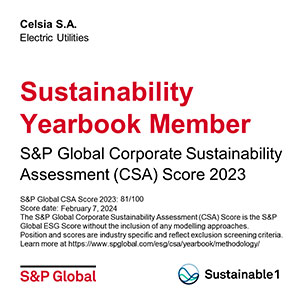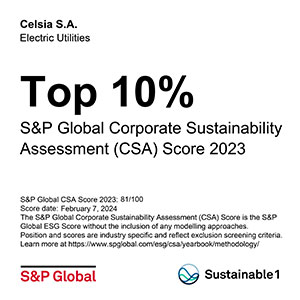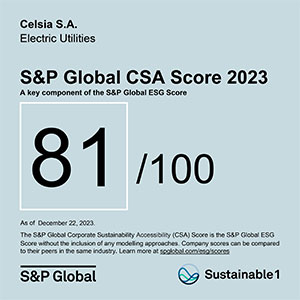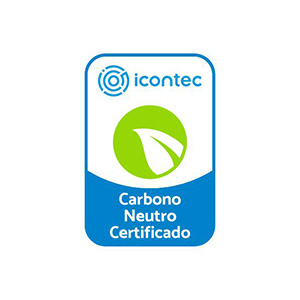We work in a sector that, when providing a public utility, has a regulatory framework that delimits actions to ensure access, quality and reliability of the service. Therefore, our operation and growth are driven by the construction of an adequate regulatory framework that transforms according to the evolution of the market.
At Celsia, the social and political environment is key to making the investment strategy a reality.It helps guarantee the competition conditions that allow us to develop the activities in which we participate, implement and introduce new business models and achieve short, medium and long-term goals.
How we Manage our Impacts
GRI (3-3) (2-23) (2-24) (2-25) (2-29) As a company, we have adapted to the political and social environment of the energy sector. Our management has allowed us to reach agreements with the government, unions and communities for regulatory and tariff changes to be made that contribute to the current problems, such as the effect of inflation on rates or compensation to the communities in which we develop projects.
Most countries today focus on decarbonizing the economy, which seeks to transform the energy matrix. This is a key factor to reduce greenhouse gas emissions, via a greater participation of non-conventional sources of renewable energy.
This scenario is not only encouraging changes in our sector, but also opens up great investment opportunities in generation with renewable sources and in technological changes.
We respect institutionality and regulatory stability, knowing they are sources of confidence for investment. In addition, we are proactive and attentive to regulatory changes related to this topic and, in turn, participate in unions and public consultations carried out by the governments of the countries in which we are present.
Contributions
Our Highest Contributions
The following information has to do with the contributions we made through support fees to some associations and unions of which we are members. The objective of these contributions is to deepen and generate knowledge on strategic issues required by the energy sector in Colombia, to continue offering a service with excellent quality and reliability.
This year, emphasis was placed on overcoming the El Niño Phenomenon as optimally as possible for customers, ensuring quality of service and constantly seeking to be active actors.
GRI (415-1)
Click on the tabs for additional details.
El Niño phenomenon
Celsia’s position on this issue: Support
Description of the position and contribution:
Hand in hand with Acolgen (the Colombian Association of Electric Power Generators), we worked on proposals for the El Niño phenomenon, including the proposal to reduce sellers’ exposure to the stock market by making surplus electricity available to the market.
Liquidity of sellers
Celsia’s position on this issue: Support
Description of the position and contribution:
With the Colombian Association of Electric Power Distribution Companies (ASOCODIS, for the Spanish original), we worked on proposals to solve the liquidity problems of sellers derived from the accumulated balances of the tariff option. We were able to present a proposal to the government to defer the balances in the tariff, for it to have the least impact on customers but, at the same time, allow financing balances from the financial sector.
Other Significant Contributions
GRI (415-1)
Below, we present our participation in non-profit associations and committees, as part of the commitment we have to the union, social, business and environmental development of the sectors to which we belong due to the nature of our operations.
Click on the tabs for additional details.
The National Business Association of Colombia (ANDI, for the Spanish original)
Name and description of the organization:
Is a business union made up of companies belonging to different sectors, such as industrial, financial, agroindustrial, food, commercial and services. It has a Vice President of Mining, Hydrocarbons and Energy, which ensures the needs of these sectors, especially in environmental, social, legal, logistical and economic matters. This contribution corresponds to the support fee Celsia pays as a member of this association and union for the social fund of Tolima.
The National Association of Public Utilities and Communications Companies (ANDESCO, for the Spanish original)
Name and description of the organization:
Is a non-profit trade association that represents the interests of affiliated residential public utilities and communications companies. This contribution corresponds to the sustaining fees Celsia pays as a member of this association and union.
The Inter-Union and Inter-Business Committee of Buenaventura
Name and description of the organization:
Is a private non-profit association, with its own assets and administrative autonomy, made up of union representatives of a legally incorporated economic activity.
It is made up of companies that carry out their economic activity in the city and entities established for the social, business, environmental and economic sustainability of Buenaventura.
This contribution corresponds to the holding fee Celsia pays as a member of this association and union.
Security and Blockages
We manage the sociopolitical risks identified in projects and headquarters as part of our integrative thinking, which seeks solutions, generating access to a management plan for these risks while also strengthening our ties with stakeholders and strategic partners.
Understanding the context in which we operate guides us to be more dynamic through the presented challenges and opportunities.
Managing the sociopolitical risks identified in all headquarters and projects is essential to Celsia’s Resource Protection team and requires continuous work. This is in order to guarantee safe conditions for employees, contractors and communities in our areas of influence. We perform this process through our partners, the private security company and public forces, and it forms a strategic pillar for guaranteeing business continuity.
Operations Affected by Blockages
Number of operational blockages
during the year
Number of operations
affected by blockages
Number of days
operations were affected
- We had two blockages by the community in the vicinity of this asset at the Pailón substation in Buenaventura, in which they expressed dissatisfaction with the public lighting, an issue for which we had no responsibility as a company. The greatest impact was the entry to the asset and the management of the different activities and emergencies that occurred. This was managed through coordination with the Police and the municipal Personería. We emphasize that cleaning and public lighting are not services provided by Celsia. We only make the collection through the energy bill and we transfer the money to the corresponding entity of your municipality.
- In the Salvajina hydroelectric power plant, the community of Suarez, Cauca blocked and illegally entered the power plant facilities for 3 days, demonstrating dissatisfaction in the energy service of the municipalities of Suarez and Buenos Aires, especially in the mining sector due to the constant suspension of energy. However, Celsia is not responsible for the provision of service in these municipalities. The greatest impact was the suspension of generation for three days. The withdrawal of the community was managed through articulation and the creation of dialogue tables, in which several state entities intervened, such as the Ministry of Mines and Energy, the Ministry of Defense, the municipal mayor’s office, the Governor’s Office, and the Ombudsman’s Office.
SASB (IF-EU-550a.1) In 2023, there were no incidents of non-compliance with physical security standards or regulations.
Main Results
GRI (3-3) Main achievements of regulatory management:
Applying the measures of the Pact for Tariff Justice (CREG Resolution 101 029 of 2022). Until September 2023, the company made progress in applying this system. Initially, the pact consisted of reducing the price between 4 and 8% of the service charged in consumer bills and its stabilization. For the families we serve in the markets of Valle and Tolima, this meant a relief in rates.
Analysis and implementation of a solution to recover Tariff Option balances (CREG Res. 101 028-23). For the recovery of balances resulting from the tariff option, a solution was found for marketers who had accumulated balances that affected their sustainability. Through various discussions among marketers, unions and companies, we were able to achieve this long-term balance recovery scheme.
Through Decree 0929 of 2023, it was established that small-scale self-generators (AGPE, for the Spanish original) can access exemption from the reactive energy transportation payment, which reduces obstacles to expanding solar power generation in the setting of distributed resources.
2023 was characterized by a broad discussion of aspects of the energy sector in Colombia in light of the increase in energy prices on the stock market due to the El Niño phenomenon and the collateral effects of the peak of inflation.
Lessons Learned
We dare to be different and are purposeful and innovative in the energy sector. We have been pioneers in developing projects aligned with the national government’s goals, such as solar farms. Our business is oriented towards renewable energy and electric mobility. A lesson we have learned is to develop our activities while adapting to changes in the regulatory and legal framework of the countries in which we operate, but also to propose regulatory adjustments to enable new business models that positively impact our company and the sector.
Relevant Fact
companies that have applied to the CREG mechanism for tariff option balances
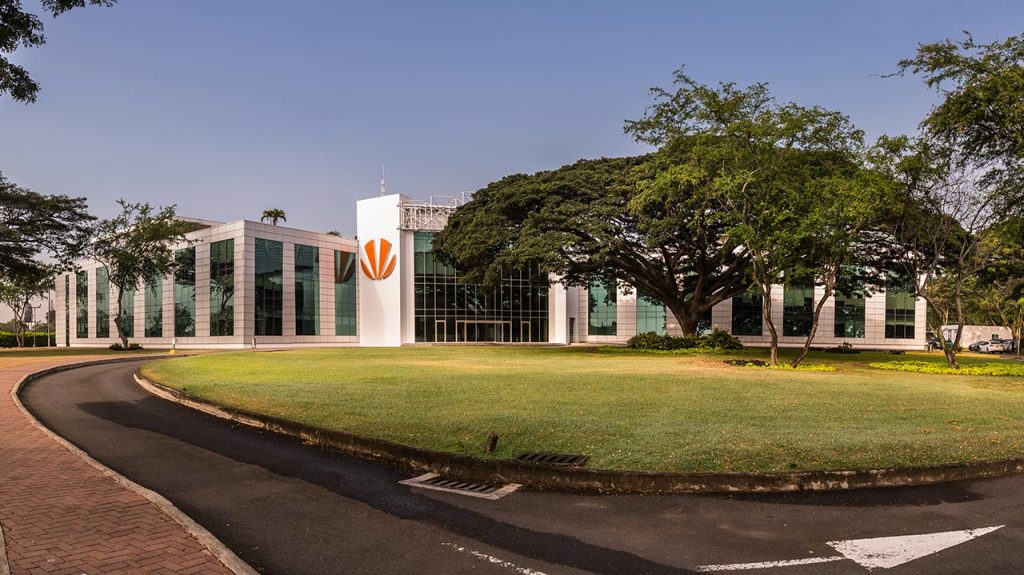
Relevant Facts
companies that have applied to the CREG mechanism for tariff option balances
Topic / Indicator | Own indicators | CSA S&P Indicator | SASB indicator | GRI indicator | TCFD | External assurance |
|---|---|---|---|---|---|---|
Type and amount of political contributions | – | 1.6.1 | – | 415-1, 2-28 | – | |
Number of incidents of noncompliance with physical and/or cyber security standards or regulations | Cybersecurity violations or incidents | – | IF-EU-550a.1 | – | – |
El Niño phenomenon: Abnormal warming of the eastern Pacific, which causes climate changes around the world. It causes rains and floods in some regions, and droughts and fires in others, such as Colombia.
Energy efficiency: The ability to obtain the best results in any activity, using the smallest possible amount of energy resources. It allows us to reduce energy consumption and, therefore, the possible environmental impacts associated with it.
NCRES (non-conventional renewable energy sources): Renewable energy resources available worldwide, that are environmentally sustainable, but which are not used in the country or are used marginally and are not widely sold.
GHG (greenhouse gases): Gaseous components in the atmosphere, which can be natural or resulting from human activity, which absorb and emit infrared radiation. This property causes the greenhouse effect..
Regulatory framework: All resolutions issued by the Energy and Gas Regulatory Commission (CREG). It is part of the general framework, such as the Political Constitution, and is made up of codes, laws, and decrees, among others.
Energy transition: The process of changing from one form of energy production to another. It includes renewable and non-renewable energy sources. Among these changes is replacing fossil fuels, such as coal and oil, with renewable sources, such as solar and wind power.
Paris Agreement: An agreement within the United Nations Framework Convention on Climate Change that establishes measures to reduce greenhouse gas emissions.
Electric mobility: It consists of integrating new technologies to get around, such as bicycles, scooters, motorcycles and electric cars. This has become one of the world’s main objectives to mitigate damage to the environment and reduce the effects of climate change.
Prosumer: Users who actively participate in the service provision chain with interactions, usually with self-consumption and, in addition, have the possibility of benefiting from their energy surpluses.


